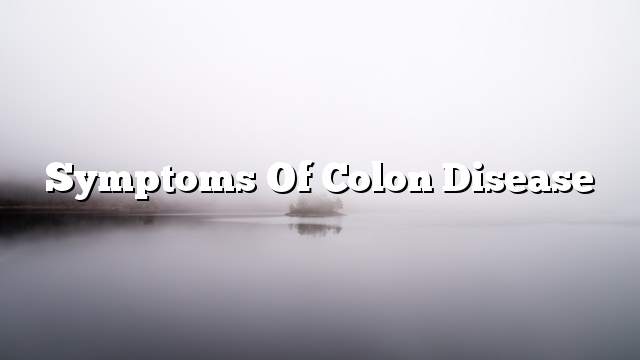Colon
The colon is an important part of the human digestive tract. It is sometimes called the large intestine. The colon reaches between the small intestine and the rectum. It absorbs the remaining water in human excreta, and secrete enzymes that analyze the organic matter found in these wastes.
Parts
The colon consists of the following parts:
- Upper or large intestine.
- The ascending colon.
- Colon Transverse.
- Downward colon.
- Colorectal colon.
Colon Diseases
The digestive system is one of the most dangerous organs in the body, especially if the food stays there for a long time, as it helps to multiply the bacteria that cause the inflammation, so we must chew food well, and drink water especially water because these practices help to fast absorption of nutrients Of food and disposal of waste naturally easy, and the diseases that affect the following:
Irritable bowel syndrome
This disease is a disorder in the digestive system in general, resulting in a defect in the function of the colon, the patient may feel abdominal pain may be severe pain comes in the form of consecutive attacks.
The person who suffers from this disease has several symptoms, as it becomes more severe during the day, including:
- Pain in the abdomen: Often the pain of the abdomen in the form of bouts or colic is sometimes light can be overcome, and sometimes a very sharp sting inhibits the movement of the person.
- Acute constipation, or acute diarrhea.
- Puffiness occurs in the abdomen, and the gases abound.
- The patient has a burning sensation in the stomach.
- Feeling nauseous.
- Difficulty in digestion.
There are many reasons for this disease, including:
- Lack of regularity in eating.
- Over eating, neglecting breakfast, and eating fatty meals especially before sleep all these factors lead to the accumulation of food in the digestive system for a long time, leading to the proliferation of harmful bacteria affects the mucous membrane that encapsulates the walls of the digestive system.
- Psychological stress: People are often subjected to great psychological pressures in their daily lives, especially in our time. The demands of life have increased, and the interests of individuals have increased, leading to increased financial burdens on the person.
- Lack of mobility: The high level of life of the individual and dependence on cars in the movement reduced the effort of muscle, which led to the relaxation of these muscles and weakness.
Colorectal or gastrointestinal disease
This disease occurs as a result of general disturbances in the digestive system, and appear in the form of a person’s feeling nausea, and heartburn frequently.
